Source ~ Aurora


Source ~ Aurora
Butterball Tabby Fat Cat
More Posts from Learned-something-new-today and Others










Alchemy Wild Glass on Etsy
apparently this is not common knowledge among punk diy sewists but if you’re sewing patches / doing any sewing that requires pushing a needle through multiple layers of fabric, use a needle grip. they’re little rubber things that have excellent grip on the metal needle so you don’t have to pinch the needle as hard. you will save your fingers soooo much unnecessary pain.
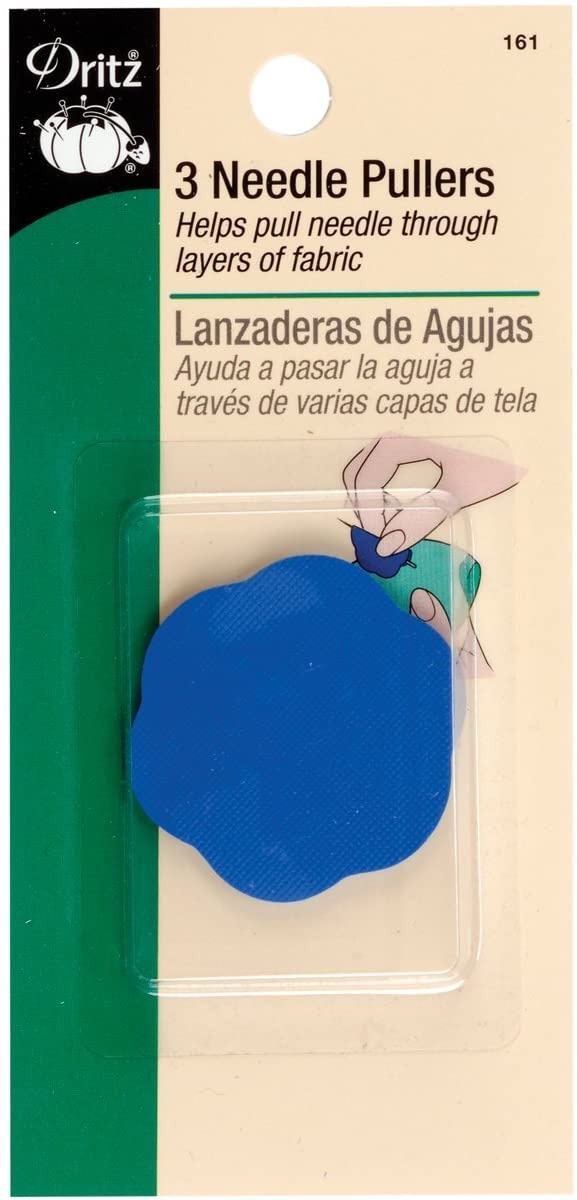

there’s two main types. the basic type is just a little circle of rubber that you fold around your needle, and the fancier type is a little rubber cap for your fingertips. they’re very cheap, under five bucks for the fancier kind and less for the basic, and they last forever. you can buy nice ones from your local craft store or steal them from the quilting section walmart idc. if you’re in a pinch (pun intended) and can’t go out, if you have a non-slip mat under a rug, cut off a little corner and that will work decently. please treat your fingers kindly <3

holy shit
FOR ANYONE DESIGNING A CHARACTER
So I was making an OC reference sheet and I had my character’s height and body shape in mind but then the concept of weight came into consideration and I wasn’t sure how much she would weigh so I found this big handy chart!

It’s a photographic chart full of clickable photographs of different people with different heights and weights (up to 6′8″ and 380 lb.) and it was really helpful for me. Maybe you have your character’s exact body shape in mind but aren’t sure what their height or weight should be. Maybe you have either their height or their weight but aren’t sure which other would fit what you already have.
If your character is an adult (I’m not sure how accurate this would be for children) I believe this would be very helpful for anyone who just so happens to be designing that character’s physical attributes!
CHART: http://www.cockeyed.com/photos/bodies/heightweight.html



Mushroom Containers // Kiyois Kustoms

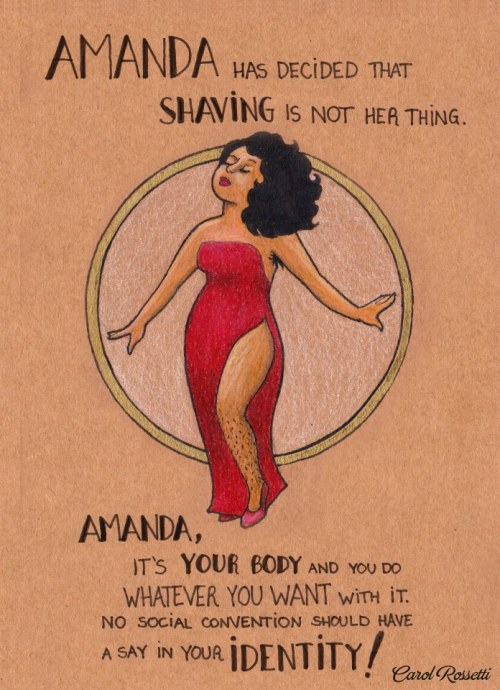
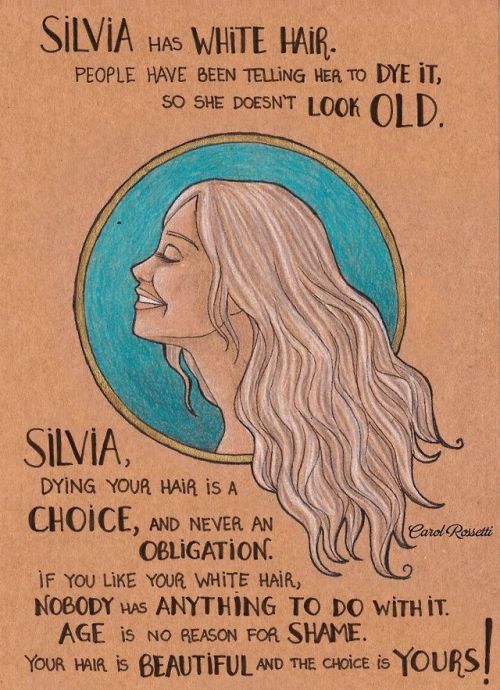
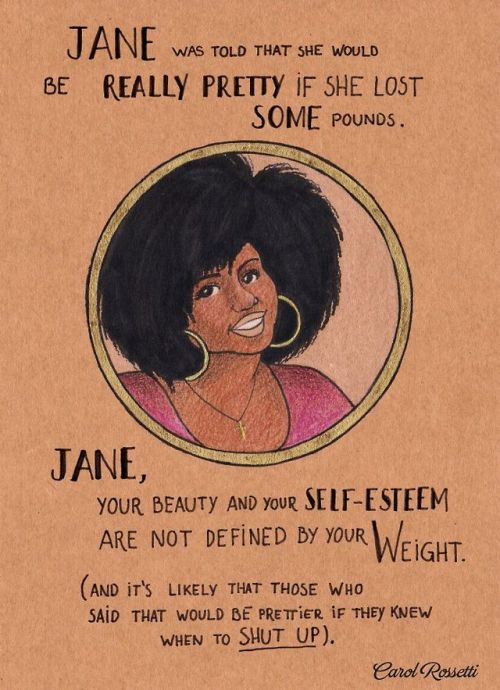
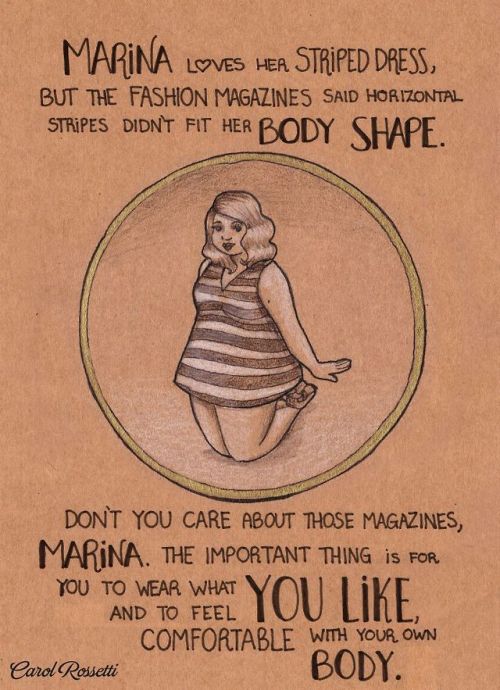

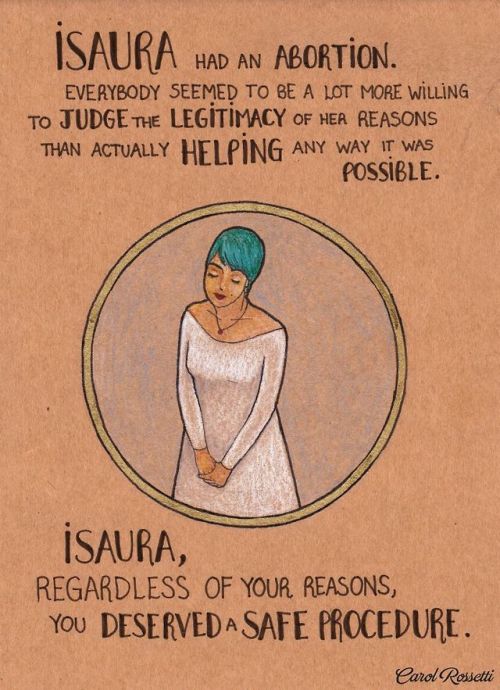

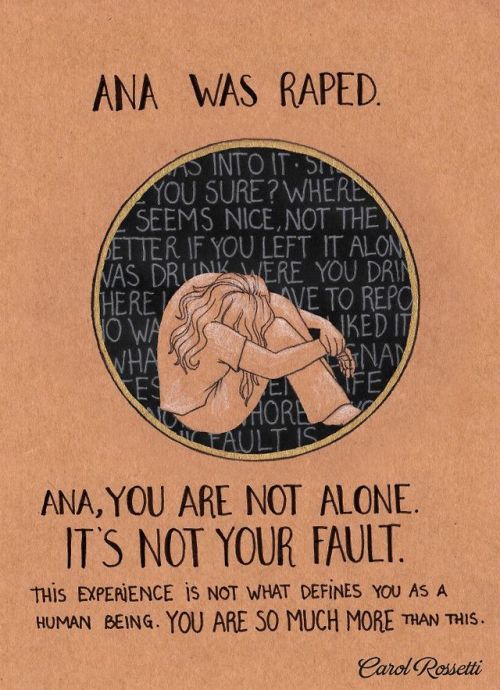

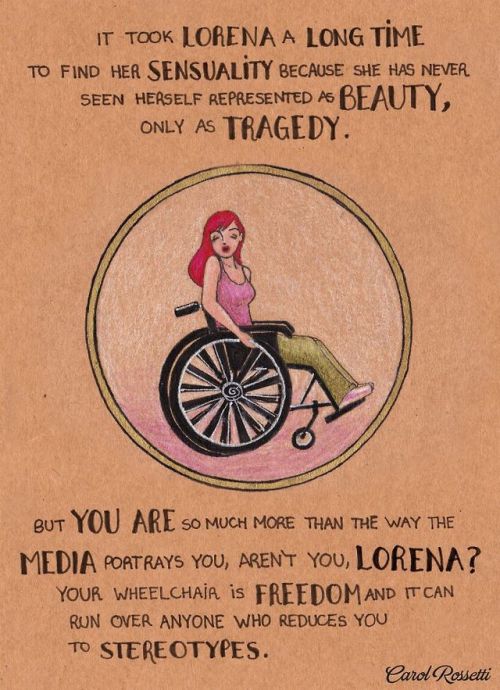
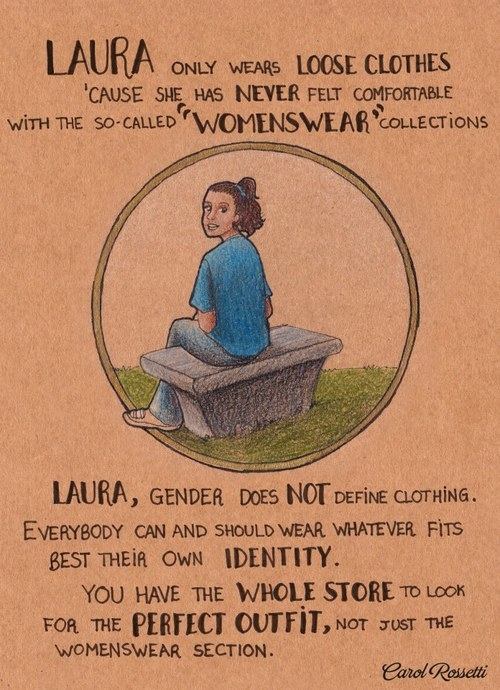
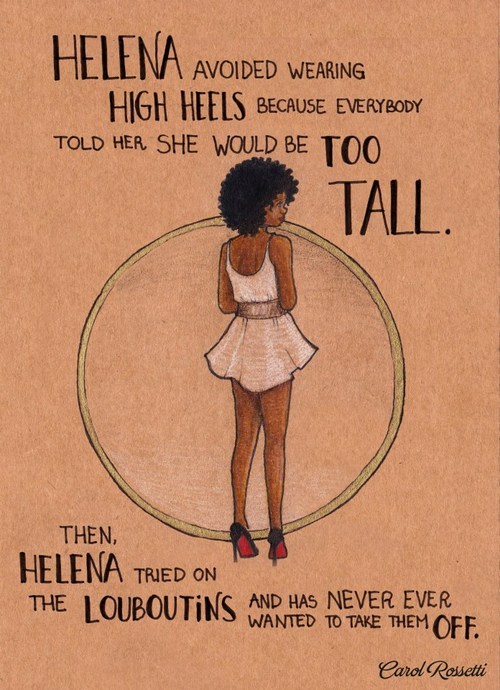


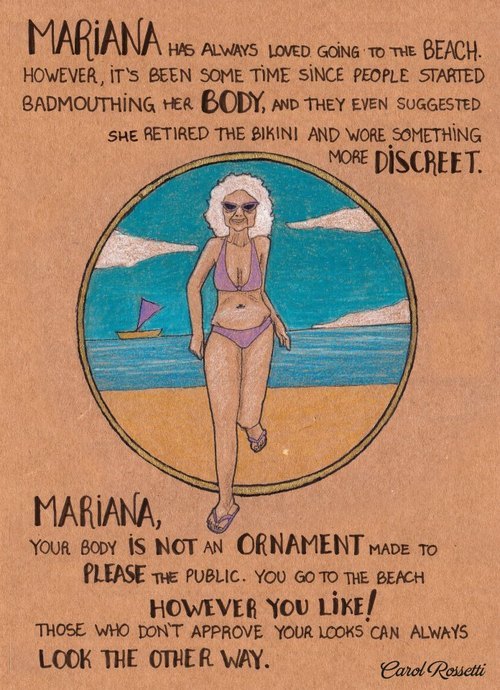
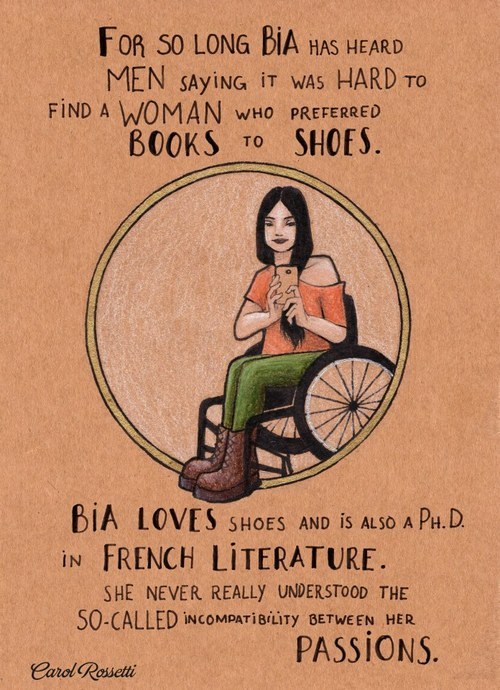


Source
“Image Credit: Carol Rossetti
When Brazilian graphic designer Carol Rossetti began posting colorful illustrations of women and their stories to Facebook, she had no idea how popular they would become.
Thousands of shares throughout the world later, the appeal of Rosetti’s work is clear. Much like the street art phenomenon Stop Telling Women To Smile, Rossetti’s empowering images are the kind you want to post on every street corner, as both a reminder and affirmation of women’s bodily autonomy.
“It has always bothered me, the world’s attempts to control women’s bodies, behavior and identities,” Rossetti told Mic via email. “It’s a kind of oppression so deeply entangled in our culture that most people don’t even see it’s there, and how cruel it can be.”
Rossetti’s illustrations touch upon an impressive range of intersectional topics, including LGBTQ identity, body image, ageism, racism, sexism and ableism. Some characters are based on the experiences of friends or her own life, while others draw inspiration from the stories many women have shared across the Internet.
“I see those situations I portray every day,” she wrote. “I lived some of them myself.”
Despite quickly garnering thousands of enthusiastic comments and shares on Facebook, the project started as something personal — so personal, in fact, that Rossetti is still figuring out what to call it. For now, the images reside in albums simply titled “WOMEN in english!“ or ”Mujeres en español!“ which is fitting: Rossetti’s illustrations encompass a vast set of experiences that together create a powerful picture of both women’s identity and oppression.
One of the most interesting aspects of the project is the way it has struck such a global chord. Rossetti originally wrote the text of the illustrations in Portuguese, and then worked with an Australian woman to translate them to English. A group of Israeli feminists also took it upon themselves to create versions of the illustrations in Hebrew. Now, more people have reached out to Rossetti through Facebook and offered to translate her work into even more languages. Next on the docket? Spanish, Russian, German and Lithuanian.
It’s an inspiring show of global solidarity, but the message of Rossetti’s art is clear in any language. Above all, her images celebrate being true to oneself, respecting others and questioning what society tells us is acceptable or beautiful.
“I can’t change the world by myself,” Rossetti said. “But I’d love to know that my work made people review their privileges and be more open to understanding and respecting one another.””
From the site: All images courtesy Carol Rossetti and used with permission. You can find more illustrations, as well as more languages, on her Facebook page.



Planters // Leikya on Etsy
-
 crack-cocaine-kibe liked this · 3 months ago
crack-cocaine-kibe liked this · 3 months ago -
 tybye reblogged this · 8 months ago
tybye reblogged this · 8 months ago -
 folieassdeux reblogged this · 10 months ago
folieassdeux reblogged this · 10 months ago -
 strangesmallbard reblogged this · 10 months ago
strangesmallbard reblogged this · 10 months ago -
 reblogswithsammy reblogged this · 11 months ago
reblogswithsammy reblogged this · 11 months ago -
 crystalheartsam liked this · 11 months ago
crystalheartsam liked this · 11 months ago -
 samalavender reblogged this · 11 months ago
samalavender reblogged this · 11 months ago -
 samalavender liked this · 1 year ago
samalavender liked this · 1 year ago -
 asskylosaurus liked this · 1 year ago
asskylosaurus liked this · 1 year ago -
 emmypupcake reblogged this · 1 year ago
emmypupcake reblogged this · 1 year ago -
 emmypupcake liked this · 1 year ago
emmypupcake liked this · 1 year ago -
 deerlyfeared reblogged this · 1 year ago
deerlyfeared reblogged this · 1 year ago -
 deerlyfeared liked this · 1 year ago
deerlyfeared liked this · 1 year ago -
 acewarden reblogged this · 1 year ago
acewarden reblogged this · 1 year ago -
 acewarden liked this · 1 year ago
acewarden liked this · 1 year ago -
 softness-shelter reblogged this · 1 year ago
softness-shelter reblogged this · 1 year ago -
 somekangarookid reblogged this · 1 year ago
somekangarookid reblogged this · 1 year ago -
 babynapdragon reblogged this · 1 year ago
babynapdragon reblogged this · 1 year ago -
 furrydragon-4 liked this · 1 year ago
furrydragon-4 liked this · 1 year ago -
 danomancy liked this · 1 year ago
danomancy liked this · 1 year ago -
 haunted-house-heart reblogged this · 1 year ago
haunted-house-heart reblogged this · 1 year ago -
 maddymoreau liked this · 1 year ago
maddymoreau liked this · 1 year ago -
 malhare-archive liked this · 1 year ago
malhare-archive liked this · 1 year ago -
 callingfates reblogged this · 1 year ago
callingfates reblogged this · 1 year ago -
 phoneymedic liked this · 1 year ago
phoneymedic liked this · 1 year ago -
 codedreams reblogged this · 1 year ago
codedreams reblogged this · 1 year ago -
 codedreams liked this · 2 years ago
codedreams liked this · 2 years ago -
 r4bb1t-gh0ul liked this · 2 years ago
r4bb1t-gh0ul liked this · 2 years ago -
 shinekittenace liked this · 2 years ago
shinekittenace liked this · 2 years ago -
 myheartismadeofstars reblogged this · 2 years ago
myheartismadeofstars reblogged this · 2 years ago -
 liveitlikeasong liked this · 2 years ago
liveitlikeasong liked this · 2 years ago -
 cozylittlebookshop liked this · 2 years ago
cozylittlebookshop liked this · 2 years ago -
 seafoam-mermaid reblogged this · 2 years ago
seafoam-mermaid reblogged this · 2 years ago -
 faebella liked this · 2 years ago
faebella liked this · 2 years ago -
 nymphinia liked this · 2 years ago
nymphinia liked this · 2 years ago -
 solemnswag reblogged this · 2 years ago
solemnswag reblogged this · 2 years ago -
 solemnswag liked this · 2 years ago
solemnswag liked this · 2 years ago -
 softiefae reblogged this · 2 years ago
softiefae reblogged this · 2 years ago -
 star-sprouts reblogged this · 2 years ago
star-sprouts reblogged this · 2 years ago -
 decapodfossil reblogged this · 2 years ago
decapodfossil reblogged this · 2 years ago -
 decapodfossil liked this · 2 years ago
decapodfossil liked this · 2 years ago -
 heavenlydolly liked this · 2 years ago
heavenlydolly liked this · 2 years ago -
 snugglingteddybears reblogged this · 2 years ago
snugglingteddybears reblogged this · 2 years ago
299 posts



